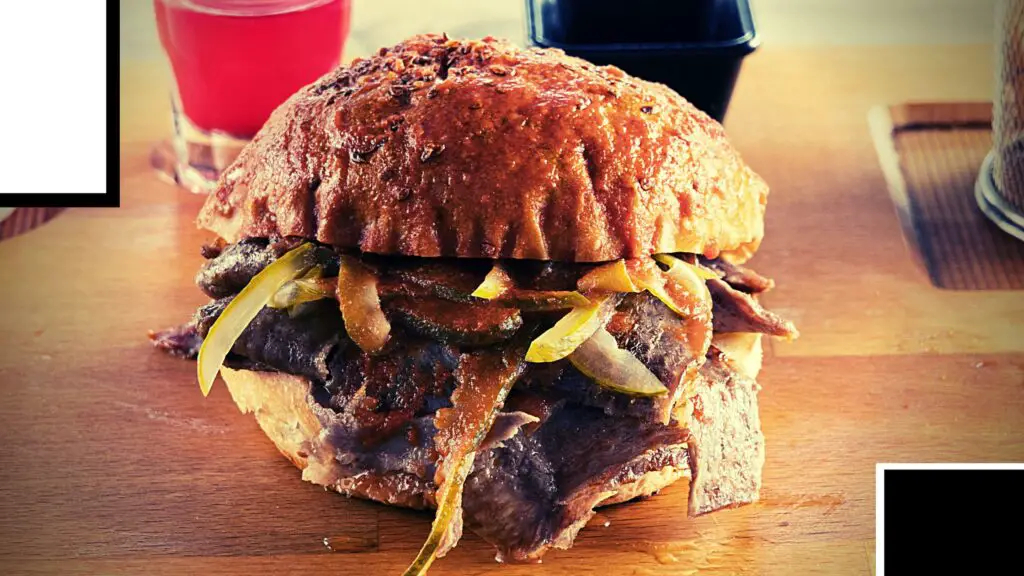Body weight
Bodyweight or A calorie is a unit. In general, it refers to energy consumption through food and beverage consumption, and energy usage through physical activity.
However, in as much as we need to lose bodyweight to gain our shape, it should also be noted that calories are essential for the preservation of good and overall health but, only when we consume them appropriately.
Appropriate consumption of calories not only promotes weight loss; it reduces heart risk disease like LDL (bad) cholesterol, and decreasing blood sugar levels.
Studies have shown that people with obesity or morbid obesity, who follow low calorie under medical supervision lose weight and improve their blood sugar which improves overall health.
Regardless matter how much weight you want to lose, achieving your weight reduction goals might be difficult.
Taking it one step at a time and adopting a few modest dietary and lifestyle changes, on the other hand, can make weight reduction much more achievable.
You may safely drop up to 10 pounds (4.5 kg) in one month by making a few minor modifications to your daily routine, allowing you to reach your weight reduction goals fast and effortlessly.
If you’re in shape, you must consume the same number of bodyweight as you burn.
But, if you’re not in shape and you really want to be in shape, then this article is for you.
It is a guide on how to bring you back in shape while you consume some bodyweight because you can’t run away from calories consumption since it is essential for healthy living.
Female Ejaculation, Orgasm and Squirting, FAQs, Facts, Differences, BENEFITS and MORE

What are calories?
Most people connect bodyweight/ calorie with food and drink, although bodyweight may be found in anything that provides energy. Coal, for example, has 7,000,000 calories per kilogram (kg).
Calories are divided into two categories: fat calories and carbohydrate bodyweight.
The amount of energy required to increase the temperature of 1 gram (g) of water by 1 degree Celsius (o C) is known as a tiny bodyweight (cal).
The amount of energy necessary to elevate 1 kilogram (kg) of water by 1 degree Celsius is known as a big calorie (kcal). A kilocalorie is another name for it.
1,000 calories are equivalent to 1 kcal.
The words “high body weight” and “low calorie” are frequently interchanged.
Every day’s demand
According to the US government, the typical male requires 2,700 kcal per day and the average woman requires 2,200 kcal per day.
Every day, not everyone needs the same quantity of calories. Individuals’ metabolisms consume energy at various rates, and some people lead more active lives than others.
The daily calorie intake that is suggested is determined by a number of factors, including:
- general health in general
- physical exertion is required
- sex,
- weight,
- height, and
- body type
Calories with little nutritional value
Calories that supply energy but have little nutritional value are known as empty calories. There is almost no dietary fiber, amino acids, antioxidants, dietary minerals, or vitamins in the sections of food that offer empty calories.
Empty bodyweight is mostly found in solid fats and added sugars, according to ChooseMyPlate.gov, a USDA food-management tool.
Solid fats:
Although they are found naturally in many foods, they are frequently added during industrial food processing and meal preparation. Solid fat is something like butter.
Read: 16 HELPFUL AND PRACTICAL WAYS TO SMILE IN DIFFICULT CIRCUMSTANCES (2023)
Sweeteners added:
Foods and beverages during industrial processing are known as added sugars. They have a lot of body weight in them. Sucrose and high-fructose corn syrup are the most prevalent added sugars in the United States.
Alcohol can also contribute to a diet’s empty calories.
A single serving of beer can add 153 calories to a person’s daily calorie consumption.
If you don’t drink beer, you may use the National Institute on Alcohol Abuse and Alcoholism’s calorie calculator to figure out how much Bodyweight alcohol contributes to your diet.
Calories from empty sources
The following foods and beverages contain the most empty calories:
Added sugars and solid fats
- pastries ice cream donuts
- cookies
- cakes
- cookies
Fats that are solid
- ribs,
- bacon, and
- hotdogs
Sugars that have been added
- sports drinks
- fruit drinks
- soda energy drinks
Sugary beverages are the most common source of empty bodyweight in the United States.
How to Lose Weight Fast in 5 Simple Steps
To lose 10 pounds in a month, how many Bodyweight should I eat?
First of all, know your body fat percentage and then determine your total daily energy expenditure. The essential bodyweight intake for a person is determined by multiple factors which include height, age, weight, and gender among others.
Researches have shown that adult women usually consume 1,600 to 2,000 bodyweight a day, while adult men eat 2,000 to 3,000 bodyweight a day.
Let’s do a quick calculation. A pound of fat is equal to 3500 bodyweights. Therefore 10 pounds = 35000 calories.
Losing 10 pounds under 30/31 days means that you have to approximately burn 1200 calories per day. Burning 1200 bodyweight a day requires that you consume lower calories per day, below 1200 – go on a calorie deficit. You must eat fewer calories than you expend as energy.
It is true that consuming low body weight, intake of calories below 1200 per day is an effective way to lose 10 pounds a month which is super possible.
But research has also shown that reducing calorie intake drastically is not good for long-term health or weight loss.
Provided in this article is also how to modify your diet and lifestyle as you go on low-Bodyweight intake just to lose 10 pounds a month.
Increase protein intake:
Numerous studies have shown that when people increase their protein intake, they start eating fewer calories. Increased morning protein intake is associated with greater feelings of fullness, decreased bodyweight intake, and a reduction in body weight.
Also, not just for breakfast. It is required of you to eat at least 30 grains of protein with every meal and 10 grains with every snack.
Protein Reduces appetite and makes you eat less Bodyweight.
It reduces hunger and appetite via several different mechanisms, which leads to an automatic reduction in calorie intake – eating fewer calories without having to count calories or consciously control portions.
This works on a meal-to-meal basis, as well as a sustained day-to-day reduction in calorie intake as long as protein intake is kept high.
In one study, protein at 30% of calories caused people to automatically drop their calorie intake by 441 Bodyweight per day, which is a huge amount
Thus, high protein diets do not only have a metabolic advantage – but they also have an appetite advantage, making it much easier to cut bodyweight compared to lower protein diets.
Take more water:
Stay hydrated. Drink at least a gallon of water a day if you are male, and 3/4 gallon if you’re female. Regardless of both gender, make sure you have a glass before every meal.
Studies of older adults have shown that drinking water before each meal may increase weight loss by 2 kg (4.4 lbs) over a 12-week period.
Since water is naturally calorie-free, it is generally linked with reduced Bodyweight intake. In a nutshell, drinking water helps to prevent long-term weight gain.
Eliminate sugar and liquid calories:
This also takes us to drink a lot of water. Instead of taking sugary drinks which contribute to body fat by adding tons of bodyweight, why not consider taking more water?
When it comes to losing weight, what you drink may be more important than what you eat, according to new research; it shows that cutting back on sugar-laden drinks is associated with weight loss and seems to have a bigger impact on weight than cutting back on solid foods.
Take more fruits than fruit juice.
Fruit juice contains little to no fiber and is full of sugar. Although it provides some vitamins and minerals, it’s no better than sugar-sweetened beverages in terms of sugar and carbs.
It’s best to avoid juice completely. Instead, try flavoring your water by adding a slice of orange or lemon.
Try intermittent fasting:
Skip breakfast and compress your daily eating into a smaller window of time. For men, at least 16 hours fast and 8 hours window meal every day is perfect.
For women, fast for at least 14 hours and 10 hours window meal is superb. This should run for the interval of noon to 8 PM.
Additionally, eating too many snacks or junk food during your 8-hour / 10-hour window can negate the positive effects associated with 16/8 intermittent fasting.
Eat a balanced diet comprising fruits, vegetables, whole grains, healthy fats, and protein to maximize the potential health benefits of this diet.
However, there is a need for intake of two small meals and one smaller low-bodyweight snack each day.
Drink sugar water once a day:
During your fasting period, drink one or three glasses of ice water with a tablespoon of sugar dissolved in each glass.
You should as well bear in mind that the sugar water should have little or no taste.
Eat more whole grains:
Whole grains are full of fiber that helps to keep you fuller and prevent you from eating too much. Examples are bulgur, oatmeal, brown and wild rice, whole-wheat bread, and pasta.
A new study found that people who eat whole grains instead of white bread and white rice absorbed fewer calories from their food.
In fact, eating whole grains is associated with various benefits, including a lower risk of diabetes, heart disease, and high blood pressure.
They deliver many important nutrients like vitamins, fiber, minerals, protein among others.
Cut down on refined carbs:
Refined carbs generally are low in nutrients and can cause spikes and crashes in blood sugar levels.
A high intake of refined carbs, according to research, is linked to higher body weight and increased belly fat.
If you want to eat fewer carbs, avoiding sugar-sweetened beverages should be one of the first things you do. Drink something refreshing with a taste, try adding some lemon or lime to club soda or iced tea.
If needed, use a small amount of low-calorie sweetener.
Carbs can add up quickly in snack foods such as chips, pretzels, and crackers.
These types of foods are also not very satisfying.
One study found women felt fuller and ate 100 fewer calories at dinner when they ate a high-protein snack, compared to a low-protein one.
Make sure to have healthy low-carb snacks such as nuts and cheese on hand in case you get hungry between meals.
In conclusion, having seen the number of calories contained in a pound, the amount of calories required to burn a day and the number of calories to eat a day, and also nutritional diets that help in consuming fewer calories per day, it is proven that losing 10 pounds in a month is entirely possible when we eat the fewer amount of calories than we burn every day.
Remember, you can’t achieve your goals without discipline.
How many calories should I eat a day to lose 10 lbs in a month?
To lose a pound, you must expend around 3500 calories without replacing them, forcing your body to compensate by burning a pound of stored fat. A monthly weight loss of ten pounds is 2.5 pounds each week. As a result, you’ll need to generate an 8750-calorie deficit per week – or a daily deficit of 1250 calories. Read more…
Is losing 10 pounds in a month realistic?
While losing 10 pounds in a month may seem impossible, it is totally feasible with some easy dietary and lifestyle changes. To lose weight safely and sustainably, take it one step at a time and make a few modest changes each week.
What should I consume in order to shed ten pounds?
Fill your plate with vegetables and restrict your intake of starchy carbohydrates and extra fats for the week. Choose lean proteins, such as chicken and fish, which are lower in fat. Instead of drinking your calories, drink water, zero-calorie beverages, tea, or coffee. If you count protein smoothies as a meal, they’re acceptable.
How many calories do I need to consume each week to lose 5 pounds?
If you want to drop 5 pounds in a week, you’ll need to cut your calorie consumption by 17,500, which is a significant amount of calories. If you weigh 250 pounds, you’ll need to cut your daily calorie intake to around 1,250 calories, which is dangerously low and can lead to famine.
On an 800-calorie-per-day diet, how much weight will I lose?
According to inventor Dr. Michael Mosley, people who strictly adhere to the Fast 800 diet can lose up to 11 pounds in two weeks by restricting their daily caloric intake to 800 calories. It’s been lauded as one of the quickest methods to lose weight, alongside the 16:8 diet.
If I don't eat for 21 days, how much weight will I lose?
To address this unpleasant situation, a new weight reduction method has been developed that takes hormones into account and provides a step-by-step strategy to losing weight quickly and keeping it off. The 3 Week Diet is the name of the regimen, and it promises to help you lose up to 23 pounds in only 21 days if you stick to it.





